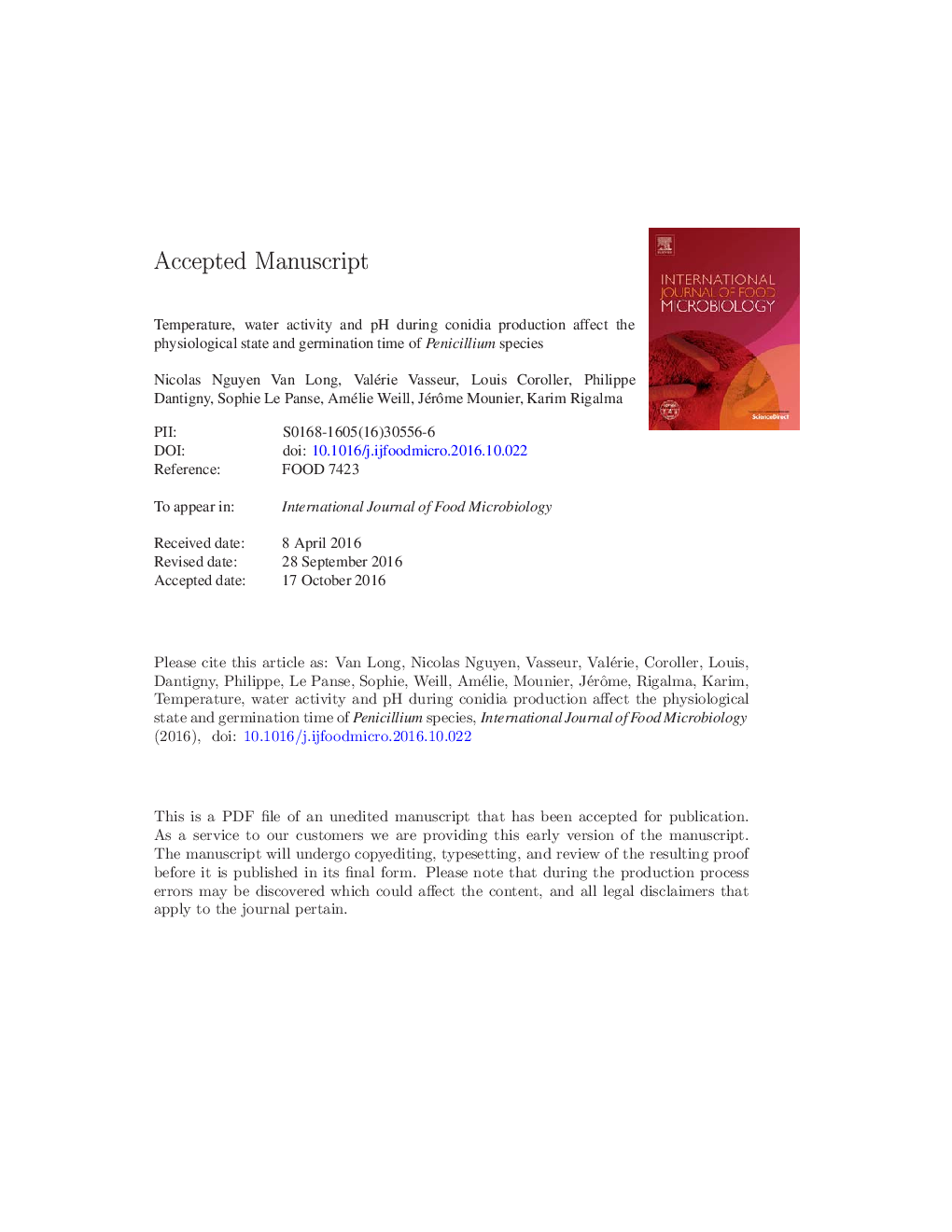| Article ID | Journal | Published Year | Pages | File Type |
|---|---|---|---|---|
| 6289662 | International Journal of Food Microbiology | 2017 | 42 Pages |
Abstract
Conidial germination and mycelial growth are generally studied with conidia produced under optimal conditions to increase conidial yield. Nonetheless, the physiological state of such conidia most likely differs from those involved in spoilage of naturally contaminated food. The present study aimed at investigating the impact of temperature, pH and water activity (aw) during production of conidia on the germination parameters and compatible solutes of conidia of Penicillium roqueforti and Penicillium expansum. Low temperature (5 °C) and reduced aw (0.900 aw) during sporulation significantly reduced conidial germination times whereas the pH of the sporulation medium only had a slight effect at the tested values (2.5, 8.0). Conidia of P. roqueforti produced at 5 °C germinated up to 45 h earlier than those produced at 20 °C. Conidia of P. roqueforti and P. expansum produced at 0.900 aw germinated respectively up to 8 h and 3 h earlier than conidia produced at 0.980 aw. Furthermore, trehalose and mannitol assessments suggested that earlier germination might be related to delayed conidial maturation even though no ultra-structural modifications were observed by transmission electron microscopy. Taken together, these results highlight the importance of considering environmental conditions during sporulation in mycological studies. The physiological state of fungal conidia should be taken into account to design challenge tests or predictive mycology studies. This knowledge may also be of interest to improve the germination capacity of fungal cultures commonly used in fermented foods.
Keywords
Related Topics
Life Sciences
Agricultural and Biological Sciences
Food Science
Authors
Nicolas Nguyen Van Long, Valérie Vasseur, Louis Coroller, Philippe Dantigny, Sophie Le Panse, Amélie Weill, Jérôme Mounier, Karim Rigalma,
